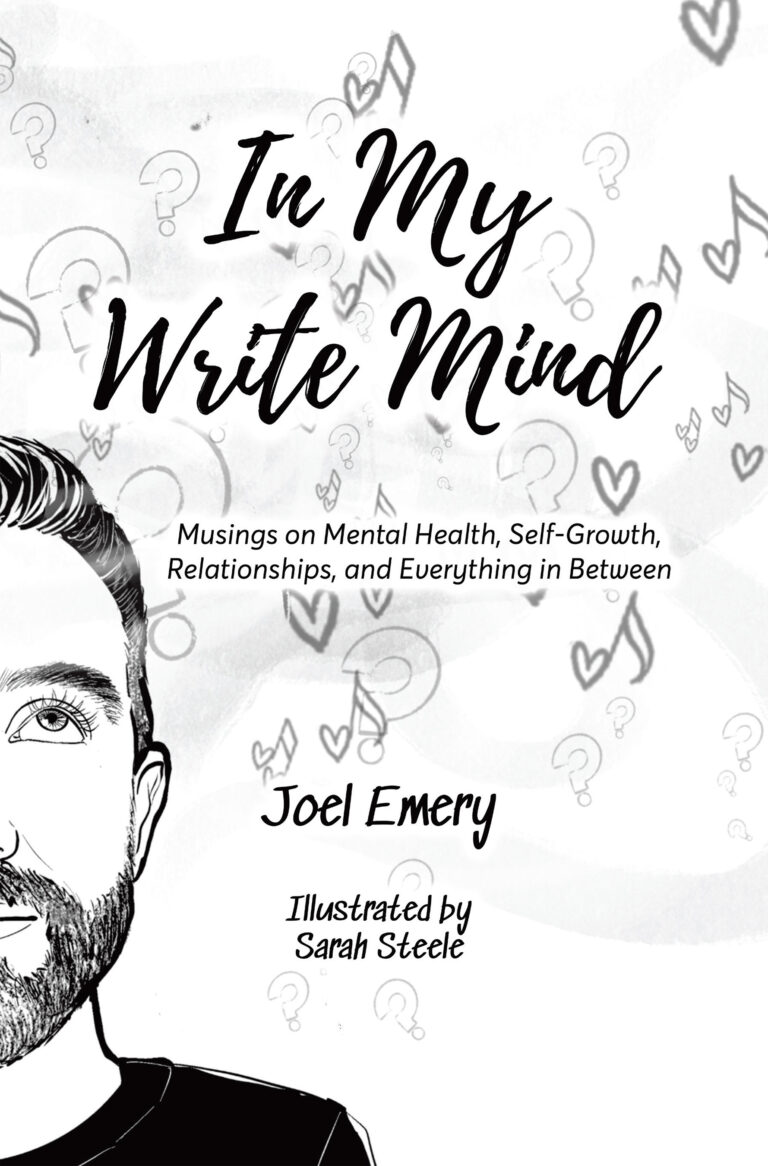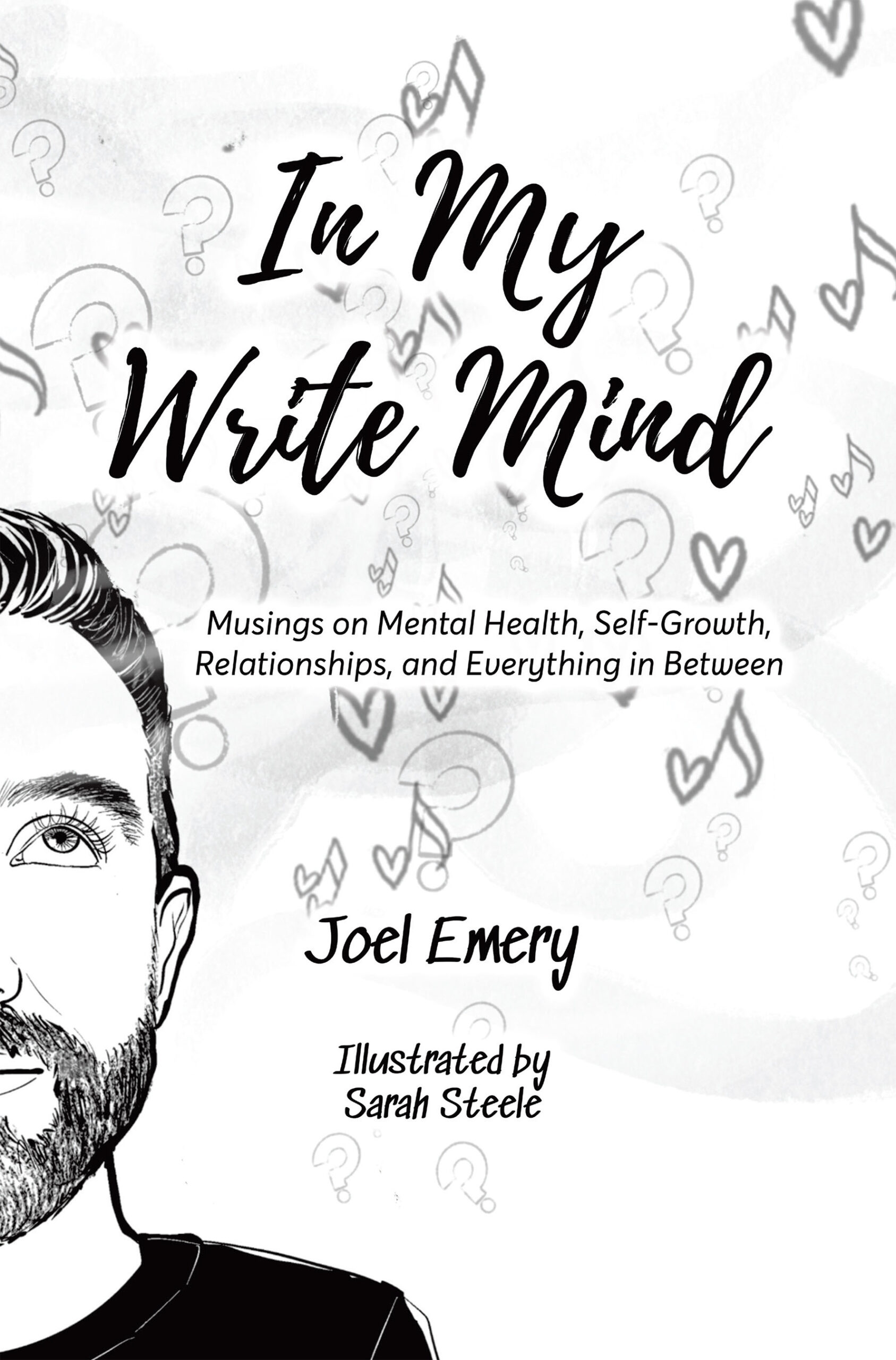Joel Emery’s IN MY WRITE MIND is both a series of reflections on mental health and a personal statement about how the author himself came to those beliefs. In the first part, the reader advances through a series of short statements, questions, and sometimes pseudo-poems or aphorisms that are directed toward calming, peaceful acceptance of the self. The second part is much more specific: a personal essay about coming out to one’s parents.
The first section of the book is generally successful. It strikes the right tone by opening with questions, not declarations; this text is not a toxic-positivity loudmouth shouting at the reader about how to fix themselves, but a gentle invitation to sit quietly together. IN MY WRITE MIND uses simple but strong I-centered language to direct its micro-meditations inward, and to keep the reader focused on the possible. It does not promise magical fixes to anything, but still offers life-affirming statements like this: “We don’t always get to choose [significant] moments, experiences, and situations, but we do get to choose how they shape us.” Often, challenges must be endured, then processed: “When I’m paralyzed by my feelings, I sit with them. I acknowledge them. I speak to them. And then I stand with the feeling that pushes me forward.” This is a critical and practical framework for everyone, but especially those struggling in their mental and emotional health. There are things we control and things we don’t, and managing our expectations and efforts accordingly allows us to keep ourselves stable and centered when experiencing external or internal disruption.
This section has a useful outlook and a gentle tone, but it also tends to drift. Some of the language specifically describes dealing with anxiety, for instance, but those references are scattered throughout and don’t relate meaningfully to one another. There is no sense of flow from one idea to the next; the reader passes through a hazy cloud of ideas, amorphous in structure. The individual reflections are themselves of varying quality. Some need more explanation, but seem like they’ve been curtailed to keep each unit short: “Spit out the deceit that your thoughts can feed you” probably relates to handling intrusive thoughts, but it feels more like poetry than a useful reflection here. Some of the metaphors are mixed or stilted, as when the reader is instructed to “[release] those seeds of self-doubt and unease.” But why do we then “let them enrich the ground beneath [us]”?
The last few pages of IN MY WRITE MIND are deeply personal; they constitute the 2009 essay that the author wrote to come out to his own parents. It is a sobering reminder of the casual homophobia that very recently prevailed in society, including in school settings, and of the real fear parents evinced of having a gay child. Though it’s a moving section of the text, it’s not entirely clear what role it plays in the overall reading experience, and it points back to the issues of flow and structure which affect the rest of IN MY WRITE MIND.
It’s unclear how this text is meant to be read. Though it’s easy to see how it could work—as small, day-to-day or moment-to-moment meditations, or read and re-read whole-cloth—there is no direction. A small “how to read” foreword, combined with more deliberate ordering of the individual components, would make IN MY WRITE MIND both more accessible and more effective.
Joel Emery’s IN MY WRITE MIND has both clear, useful meditations on mental health and a poignant personal narrative.
~Dan Accardi for IndieReader


